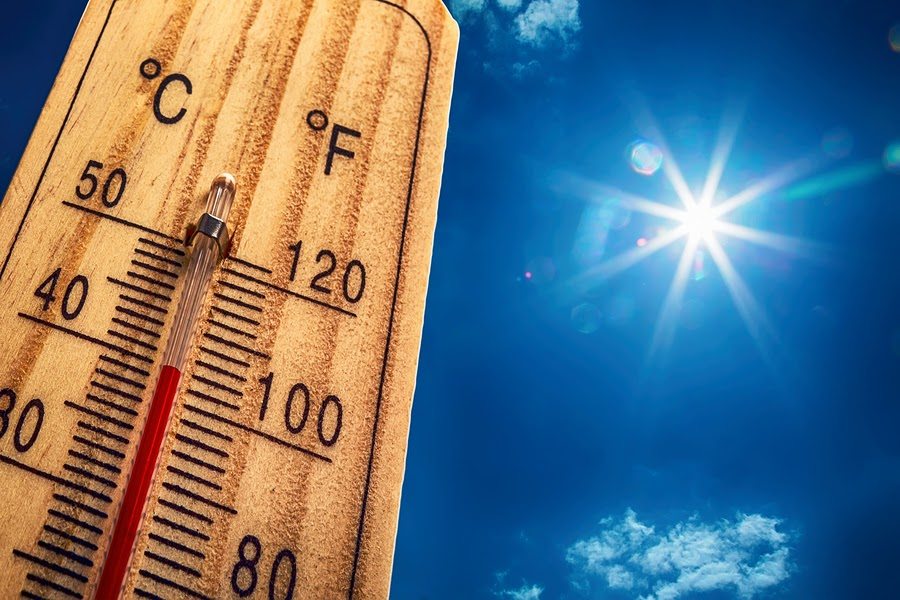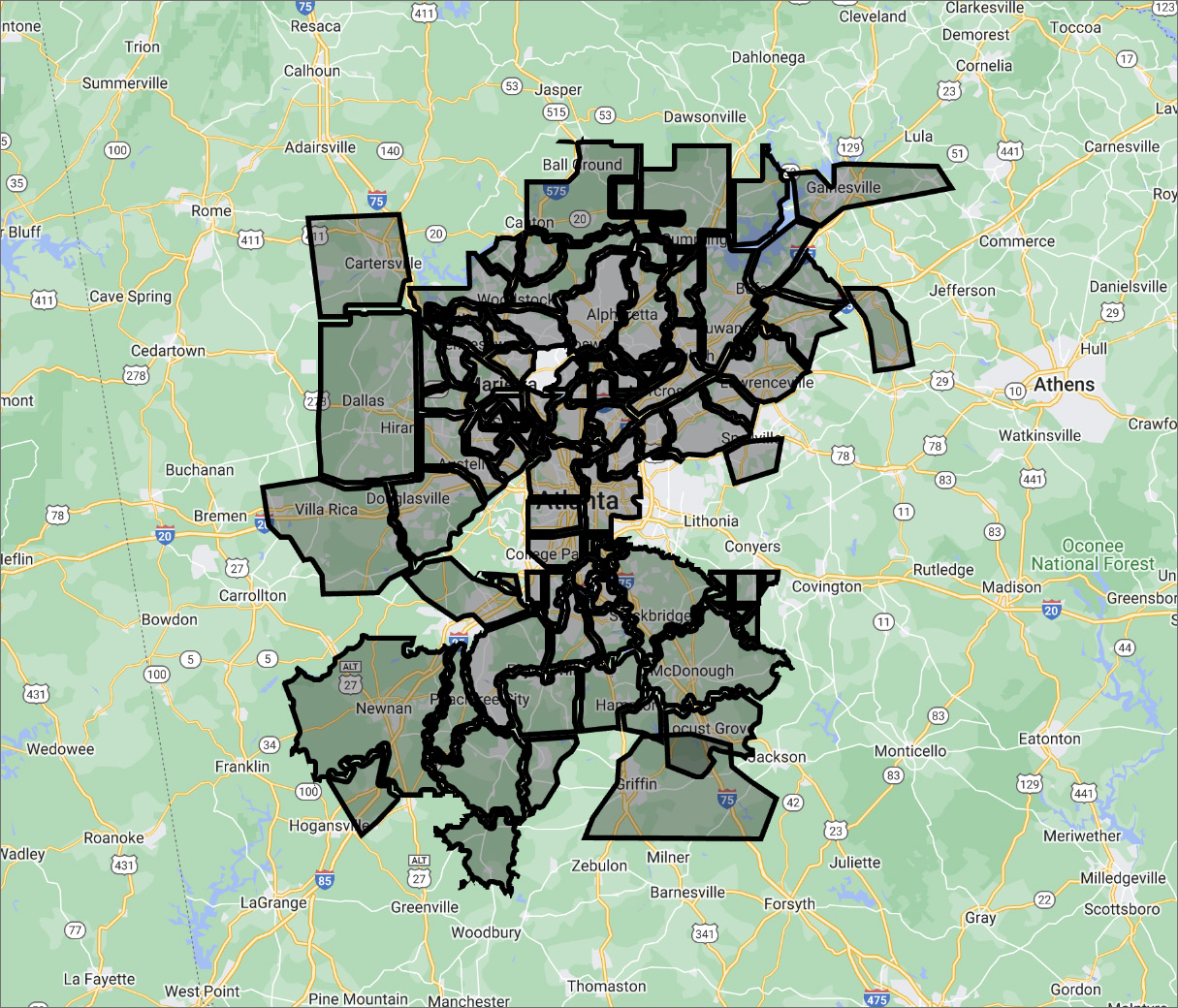Soft, silky, and sweet-natured, guinea pigs have burrowed their way into our hearts and homes since arriving in the west during the sixteenth century. These gentle, big-eyed fluffballs are popular throughout the United States, but owners who live in certain parts of the country need to exercise some special precautions. It’s easy (and dangerous) for guinea pigs to overheat, so if you live in a hot southern climate like Atlanta’s, you’ll need to keep your guinea pig at a comfortable temperature during the blistering summer months. Our Atlanta pet sitters explain the ideal temperature for guinea pigs, offer some tips on keeping your pet guinea pig cool, and talk about the warning signs of overheating and heat stroke.

4 Ways to Cool a Guinea Pig Down in Hot Weather
While some animals are hardier than others, all living creatures have an ideal temperature range that’s best for their breed or species. Keeping your pet at just the right temperature will help you ensure that your fluffy friend enjoys a longer, healthier, happier life.
Guinea pigs don’t exist in the wild, but their closest relatives, members of the rodent-like Cavia genus, exist throughout South America. That might lead you to assume guinea pigs would prefer hot, humid climates; but in fact, just the opposite is true. Because they’re rather plump and compact, guinea pigs are actually better suited to tolerating wintry weather than scorching summers, within limits. It’s fairly easy for guinea pigs to overheat, but by taking some basic precautions, you should be able to keep your pet comfortable and avoid heatstroke or hyperthermia (abnormally high body temperature).
A guinea pig’s normal body temperature should be somewhere between 101 and 104 degrees Fahrenheit – equivalent to a human running a high fever. Since guinea pigs have almost the same body temperature as people, their ideal ambient temperature is also similar to ours: anywhere between about 65 and 75 degrees Fahrenheit.
Despite these similarities, there is one major difference between guinea pigs and people when it comes to living environments. While healthy humans can continuously tolerate temperatures over 90 degrees Fahrenheit with few ill effects (besides a little bit of sweating and complaining), consistent exposure to temperatures over 90 degrees has been associated with increased fatality rates in guinea pigs. This is especially true of sows (female guinea pigs) during pregnancy. The connection between temperatures over 90 and increased mortality in guinea pigs was demonstrated by research conducted by Joseph Wagner and Patrick Manning during the 1970s.
Now that you know the best temperature for a guinea pig is somewhere between 65 and 75 degrees, it’s up to you how to keep your guinea pig’s living environment in that range. Some tips include:
1. Keeping your guinea pig in a shady area of the house that doesn’t get lots of direct sunlight.
2. Keeping the cage set at least a few feet back from any windows. The glass can amplify the heat of the sun shining through, so maintaining a little distance will help bring the temperature down.
3. Getting a dehumidifier. Guinea pigs can get sick easily if the humidity exceeds 70% (or drops below 30%).
4. Making sure your guinea pig has plenty of cool water to drink. Fresh basil, alfalfa, sprouts, lettuce, and fruit – staples of a healthy guinea pig diet – can also help your guinea pig stay hydrated.
There is one thing you should avoid: keeping your guinea pig in a drafty area. Drafty conditions make it easier for guinea pigs to get sick, so exercise common sense if using an air conditioner or leaving the windows open.
Symptoms of Overheating (Hyperthermia) or Heatstroke in Guinea Pigs
You should be able to prevent overheating by following the suggestions above. Nonetheless, it’s important that you’re able to recognize the warning signs a guinea pig is overheating. The earlier you’re able to detect sickness in your guinea pig, the earlier you’ll know to call a veterinarian – and the better chance you’ll have of saving your pet from disaster. Warning signs of heatstroke or hyperthermia in guinea pigs can include:
- Breathing rapidly
- Coma
- Lying down and being unresponsive or lethargic
- Seizures
If you notice any of these signs, it’s critical to cool your guinea pig down right away and contact a vet immediately. Swift intervention is crucial when a pet is overheating.

Atlanta Pet Sitters for Hamsters and Guinea Pigs
Are you looking for a caring, reliable, and affordable pet sitter to watch your guinea pig or hamster while you’re away from Atlanta on a vacation or business trip? With our huge team of over 100 in-home pet sitters serving Atlanta, Brunswick, Fayetteville, Gainesville, Mableton, Roswell, Sandy Springs, Smyrna, and more, Critter Sitters is available where and when you need us, including weekends and holidays – even on short notice. And with decades of experience caring for tens of thousands of happy pets, you can trust that we understand the unique care requirements for guinea pigs, hamsters, rats, mice, and other small pets.
To book an in-home pet sitter in Atlanta or the surrounding areas, call Critter Sitters today at 404-793-6178.


